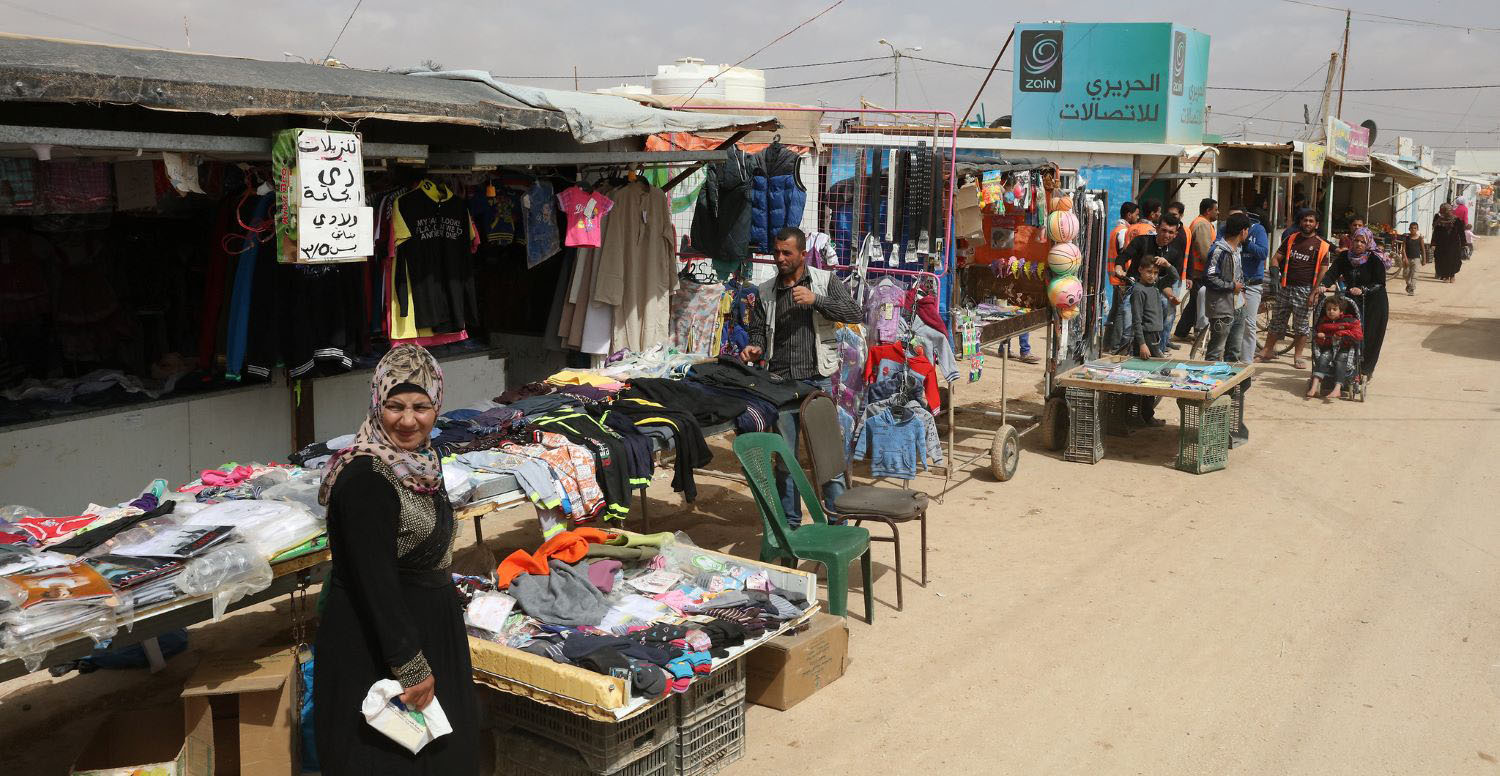On Thursday we launched our new research at an event in New York with the Tent Foundation and CEOs from Ikea and other multinational corporations on how global businesses can engage refugees in more sustainable ways. As leaders gather for the UN General Assembly, we hope they will focus on the unique value add of businesses. Their leadership is vital at a time when some governments—including the United States, a historic leader on refugee issues—are stepping back from their commitments. With the right support and opportunities, refugees quickly become economic contributors to their host countries—and businesses are a critical piece of the puzzle.
The private sector can and does help by donating money to humanitarian organizations, but even a generous financial contribution is more likely to be one-off or occasional. In-kind donations of goods and services can be helpful in certain circumstances, but they are often supply-driven and can be costly to deliver and match with needs on the ground.
Instead, we see the potential for greater and more sustained results when companies seek to leverage their “core business” to engage refugees—when companies treat refugees not as victims, but as productive workers, suppliers, entrepreneurs, and customers. If CEOs go beyond corporate social responsibility programs and use their core business functions, they can sustainably promote economic opportunities for refugees, grow their own business, and be on the right side of history.
Our report finds:
-
Global businesses can make unique and valuable contributions to refugee response by engaging refugees not as aid recipients, but as employees, producers, investees, and customers.
-
The position of global enterprises as market leaders, policy influencers, and innovators gives them distinctive capacities for engagement and advocacy that do not exist within the traditional refugee response community.
-
By including refugees in their core business activities, global enterprises can achieve social impact, gain reputational benefits, and build brand loyalty, while maintaining or enhancing their bottom line.
-
Global businesses can sustainably increase their engagement with refugees by:
-
Including refugees in hiring and supply chains. Global companies can advance their businesses and improve refugees’ capacity for self-reliance by creating targets or incentives around hiring refugees as employees, sourcing from refugee-owned businesses, and sourcing from businesses that employ significant numbers of refugees.
-
Impact investing for refugee livelihoods. Global investment firms can improve refugee livelihoods and achieve financial returns by investing in companies that hire and source from refugees, refugee-owned small and medium-sized enterprises, social enterprises, and development impact bonds.
-
Developing goods and services to meet refugee needs. In targeted areas such as financial services, global businesses can potentially reach refugees as customers by adapting their goods, services, and delivery systems.
-
Global businesses should partner with host governments and humanitarian and development actors to advance policy reforms and programs that enable success, to ensure that solutions meet the needs and protect the rights of refugees. And, to promote sustainability and local support for their efforts, global companies should engage in ways that benefit both refugees and host communities.
-
Global businesses and their partners should collaborate to develop resources and mechanisms that increase effectiveness and accountability, including standards for ethical conduct, diagnostic tools for identifying core business opportunities, country-level facilitation platforms, and a learning and evaluation center.
Our next phase of research will focus on how to translate key opportunities for engagement to specific opportunities in top refugee-hosting countries in the developing world.
CGD blog posts reflect the views of the authors, drawing on prior research and experience in their areas of expertise.
CGD is a nonpartisan, independent organization and does not take institutional positions.





